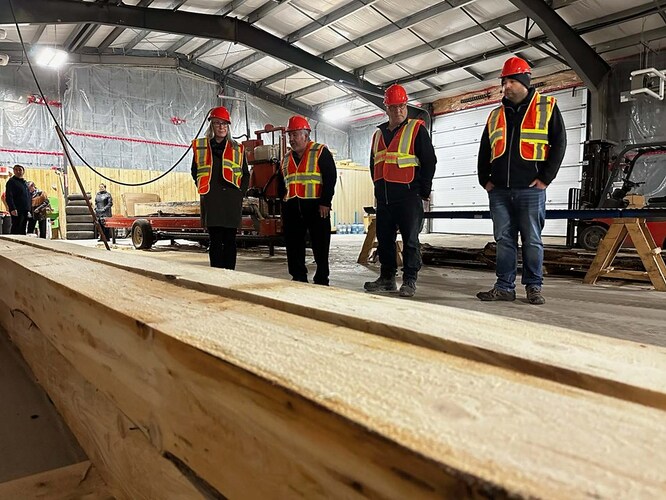EAR FALLS – Canada’s lumber industry was weathering weak markets before Donald Trump became U.S. president again, but Trump’s tariffs made an already difficult situation even worse.
That’s the assessment of Ian Dunn, president of the Ontario Forest Industries Association (OFIA).
Duties and tariffs on softwood lumber have tripled to 45 per cent from 15 per cent just months ago, Dunn told Newswatch in a phone interview from Toronto.
“It’s still early days” since Trump added 10 percentage points to the burden, he said, and mill operators are weighing their options.
“Companies are certainly losing money as we speak, but they do not want to lay people off because it’s very hard to get people back,” he said.
“And I think there’s hope that there might be some additional stabilization measures or programs that the province or the federal government may come out with that will help us through this difficult time.”
Dunn made his comments Thursday afternoon as Interfor was informing Ear Falls Mayor Kevin Kahoot of their decision to shut down their Ear Falls mill indefinitely, putting more than 100 employees out of work.
Dunn described the situation for Canadian softwood as a crisis and said it is “absurd” for the U.S. government to call wood imports a national security threat, as Trump did in justifying tariffs.
“Tariffs are not good,” Rick Dumas, president of the Northwestern Ontario Municipal Association, said Friday.
“It’s a tax on all consumers, all people, all industries, and we’re seeing a huge impact right here in our backyard with the forestry sector.”
Matters are made worse by the unpredictable character of the Trump White House, he said.
“Every day we hear something different from our neighbours to the south, with the president saying different things and different impacts, and you can meet with him one minute and the next minute he’s (changing his position).”
In an OFIA news release, Dunn said “progress appears to have been made with the U.S. for other trade-impacted sectors, and lumber needs to be viewed as an equal priority.”
Ottawa announced in August loan guarantees and other measures to help the softwood lumber industry weather the trade storm.
Dunn said the OFIA is thankful for those measures but they “need to be accessible to the sector, and the urgency to get this done has never been greater.
“Our industry continues to work with the government of Canada to implement stabilization measures that work for the industry, and support efforts in getting a deal done that includes the forest product sector.”
